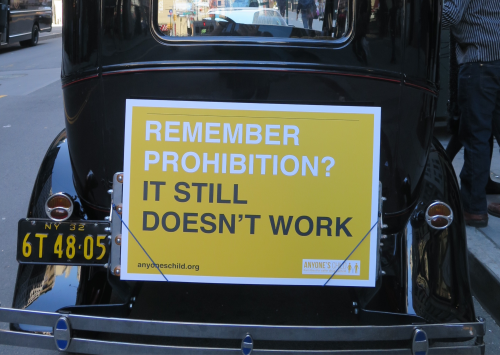30th November 2023
This is an edited extract from Transform’s How to Regulate Psychedelics: A Practical Guide - by Steve Rolles and Ester Kincová - now available on Transform’s website, or you can order a print copy.
Approx reading time: 3.5 minutes
Psychedelic drugs should not be treated as exceptional and more viable for reform than other drugs.
Certain types of drugs, or groups of people who use drugs, have frequently been privileged or prioritised by policy and law reforms while leaving others subject to sanctions. However, the arguments for both removing criminal penalties for drug use and for legally regulating a drug market apply universally across all types of drugs.
Drug exceptionalism benefits some people over others
The phenomenon of prioritising drugs for reform has already been witnessed with cannabis reforms and, now, something similar is emerging with psychedelic reforms, particularly in the United States (Detroit, for example, specifically decriminalised the "possession and therapeutic use of plant-based psychedelics and did not include other illegal drugs). But the reasoning for such drug exceptionalism is completely arbitrary, creating a damaging and false narrative that some drugs have more reason to be reformed and regulated than others. Even if this approach may help progress the reform debate for a particular drug, it does so by benefiting some members of society over others. This risks increasing stigma and perpetuating punishments imposed on people who use other drugs.
Psychedelic drugs (or any drug), should not be treated as exceptional and more viable for decriminalisation or legal regulation simply because they are perceived to present lower risks than other drugs, be therapeutically more useful, or be somehow more spiritually significant. Indeed, a strong argument can be made that the opposite is true; the riskier the drug, and the greater its associated social and health harms, the more urgent it becomes to place the drug (or group of drugs) within an appropriate legal and regulatory framework which prioritises and promotes public health goals.
Individual drugs are not isolated regulatory challenges
It is important to not view individual drugs as isolated regulatory challenges. In the context of normalised polydrug use and intersecting drug markets and cultures, it is clear that the legal policy response to one drug (or drug group) can impact on the markets, using behaviours and associated social and health challenges of other drugs as well - this can have both positive and negative outcomes. Evolving drug regulation policy should be sophisticated enough to monitor and manage this complex interplay of different drug markets and using behaviours, and the legal policy environments that shape them - no one should be left behind because of the drugs they use.
Political expediency comes at an ethical cost
It seems likely that drugs generally perceived as lower risk, such as cannabis and psychedelics, will often be legalised and regulated first for reasons of public acceptability and political expediency. The emerging realities of incremental reform, however, do not mean that it is desirable from an ethical or practical policy perspective.
While psychedelic reforms, like cannabis reforms, offer opportunities to demonstrate that formerly prohibited drugs can be moved into a new safer system and be responsibly regulated, incremental reforms also risk granting selected drugs, their users and associated markets special status while stigmatising people who use other drugs.
Reform advocates should be mindful of the fact that this incremental process, and its accompanying challenges, are somewhat inevitable and in some places already underway. Where it does occur, we must be attentive in informing public discourse of the wider debate.
Regulation should be based on risk
Drugs need regulating because of their risks: criminalisation/prohibition increases those risks, while responsible regulation can reduce them. While psychedelics present different challenges for regulation because of their risk profiles and particular cultures of use, this does not mean they fall entirely beyond the ambit of legitimate interventions. They do pose risks and those risks can be significant. The goal of regulation, from a public health perspective at least, must be to identify vulnerabilities and target the risks that do exist while not unjustifiably restricting freedoms of use in relation to those risks. This rationale applies across the board, not just to the drugs we read about in glossy feature articles or hear promoted on celebrity podcasts.
How To Regulate Psychedelics: A practical guide is available on Transform’s website, or you can order a print copy: https://transformdrugs.org/publications/how-to-regulate-psychedelics




